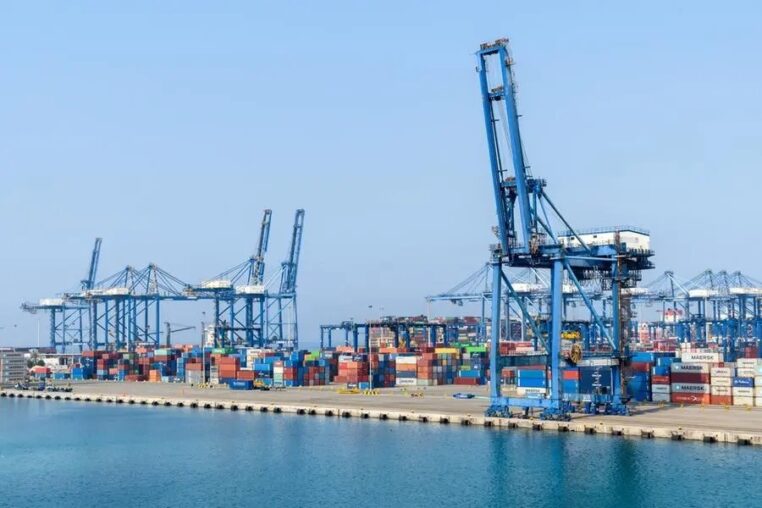From electronics to toys, getting your goods into Saudi markets takes more than just demand—it takes the right documentation. Learn what trips up most sellers and how to avoid delays that can cost time and money.
The Paperwork Problem Few New Sellers See Coming
Selling consumer goods in Saudi Arabia—especially high-demand items like electronics, toys, and household devices—sounds like a profitable move. And it can be. But for many first-time importers and even seasoned sellers expanding their category, one major hurdle can quietly derail progress: incomplete or incorrect paperwork.
Importing into Saudi Arabia involves more than shipping and customs declarations. You need product-specific compliance certificates, safety documentation, and government approvals. If just one form is missing or outdated, your shipment might sit at port for days—or worse, get rejected altogether.
Let’s say you’re a small Dammam-based distributor trying to bring in a new line of Bluetooth speakers or battery-operated toys. Without the right SASO or SABER certification in place, customs officials at al batha or any inland checkpoint won’t hesitate to block your shipment. And if your paperwork doesn’t match the product codes used in customs systems, the delays can snowball fast.
When Missing Paperwork Turns into Missed Sales
The real problem isn’t just paperwork. It’s what happens when that paperwork fails.
One of the biggest points of confusion comes from product categorization. A set of smart LED lights may fall under general electronics or lighting products, depending on how it’s declared. Misclassify it, and you risk having the wrong documentation, even if you followed all other guidelines. And because Saudi Arabia has strict compliance regulations—especially for children’s items and anything electrical—the risk of rejection is high.
Worse, the delay isn’t always immediate. Sometimes a shipment reaches port, and customs opens it for random inspection. If your batch of toys doesn’t have valid GCC conformity certificates—even if they’re en route from a trusted supplier—they’re not going to clear customs. This kind of delay can:
- Damage your reputation with local retailers
- Lead to demurrage fees at ports like dammam sea port
- Trigger full re-export of your shipment at your cost
For small and mid-sized businesses, this kind of setback can be financially devastating.
Case Study: How One Dammam Importer Turned It Around
In late 2023, a mid-sized toy distributor based in the Al Faisaliyah district of Dammam faced a costly mistake. The company had just placed its biggest seasonal order—over 40 pallets of licensed toys intended for winter sales. They arrived at dammam sea port, and that’s where things began to unravel.
Customs flagged the shipment for missing SABER certification. The toys, which featured small electronic components, required a product safety test and a valid Certificate of Conformity. While the supplier had sent test results, they weren’t approved through the Saudi SASO system.
The toys sat at port for over two weeks, costing the company nearly SAR 30,000 in storage and administrative penalties. More importantly, they missed the retail window for winter promotions. Several major stores in Al Khobar canceled orders.
Desperate not to repeat the mistake, the distributor sought help from a logistics compliance expert. Together, they:
- Created a master compliance checklist by product type
- Verified all upcoming imports against SABER requirements before shipping
- Coordinated pre-approval with Saudi customs using the correct HS codes
By spring, they had cleared three shipments with zero delays. The key wasn’t just having documents—it was understanding which documents mattered for which category and coordinating approvals before goods even left port of origin.
How to Stay Compliant and Ahead of Delays
If you’re preparing to sell electronics, toys, or similar goods in Saudi Arabia, take these steps before placing your next shipment order:
1. Know What Certificates Apply to Your Product
Different product types require different compliance documentation. For instance:
- Electronics may require SASO or IECEE recognition
- Toys need GCC conformity certificates and often product testing
- Items with lithium batteries require additional safety reports
Get guidance from the Saudi SABER system or work with a local broker familiar with the process.
2. Use Accurate HS Codes and Descriptions
Ensure your goods are classified under the correct Harmonized System (HS) code. This determines both the tax duty and which compliance documents you’ll need. Using vague or mismatched descriptions often causes clearance delays.
3. Coordinate with a Local Clearing Agent
Local clearing agents at al batha or other border checkpoints can provide insight into how specific products are treated. An experienced agent can help:
- Pre-review your shipment documentation
- Flag potential issues before customs does
- Help you resolve classification problems quickly
4. Verify Before Shipping
Check every required document—including certificate numbers, expiration dates, and product matches—before your container leaves the origin country. Correcting mistakes post-arrival is always more expensive.
5. Don’t Rely Solely on Suppliers
While your supplier may promise “all documentation included,” that doesn’t guarantee Saudi-specific requirements are met. Always cross-check what you receive against the latest government standards.
Why the Right Documents Make All the Difference
Saudi Arabia’s customs system has become faster and more digital in recent years, but that hasn’t made it more forgiving. Regulations continue to evolve, and enforcement is serious—especially at high-volume points like al batha and the seaports.
Compliance is about more than avoiding fines. It ensures product safety, protects your brand, and builds reliability with your buyers. The businesses that win are the ones that treat documentation as a core part of their logistics—not an afterthought.
Start Clean, Ship Smart, Sell Faster
There’s no shortcut around documentation. But there is a smarter way to manage it.
Before your next shipment of electronics, household goods, or children’s items hits Saudi soil, take the time to get expert review. Whether you’re shipping through dammam sea port or entering via land, paperwork delays are preventable—and the difference between profit and loss often lies in a single missing certificate.
If you’re unsure about your product’s paperwork, or have faced customs delays before, it’s time to bring in the experts. Our team can review your case, provide fast solutions, and keep your goods moving.
📱 966558959205




